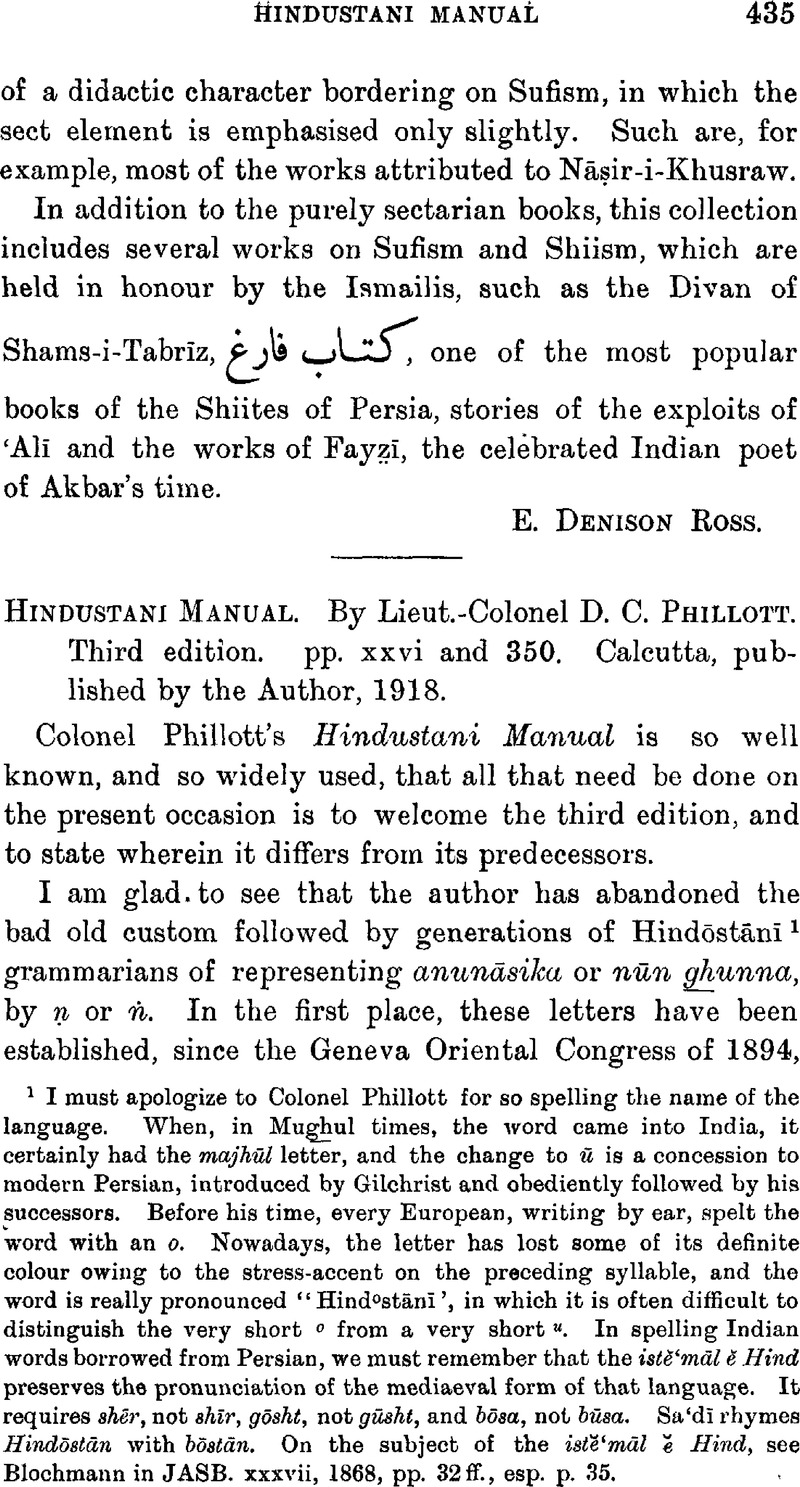No CrossRef data available.
Article contents
Hindustani Manual. By Lieut.-Colonel D. C. Phillott. Third edition. pp. xxvi and 350. Calcutta, published by the Author, 1918.
Review products
Published online by Cambridge University Press: 15 March 2011
Abstract

- Type
- Notices of Books
- Information
- Copyright
- Copyright © The Royal Asiatic Society 1919
References
1 I must apologize to Colonel Phillott for so spelling the name of the language. When, in Mughul times, the word came into India, it certainly had the majhūl letter, and the change to ū is a concession to modern Persian, introduced by Gilchrist and obediently followed by his successors. Before his time, every European, writing by ear, spelt the word with an o. Nowadays, the letter has lost some of its definite colour owing to the stress-accent on the preceding syllable, and the word is really pronounced “Hindostānī', in which it is often difficult to distinguish the very short ofrom a very short u. In spelling Indian words borrowed from Persian, we must remember that the istĕ'māl ĕ Hind preserves the pronunciation of the mediaeval form of that language. It requires shēr, not shīr, gōsht, not gūsht, and bōsa, not būsa. Sa'dī rhymes Hindōstān with bōstān. On the subject of the istĕ'māl ĕ Hind, see Blochmann in JASB. xxxvii, 1868, pp. 32 ff., esp. p. 35.Google Scholar


